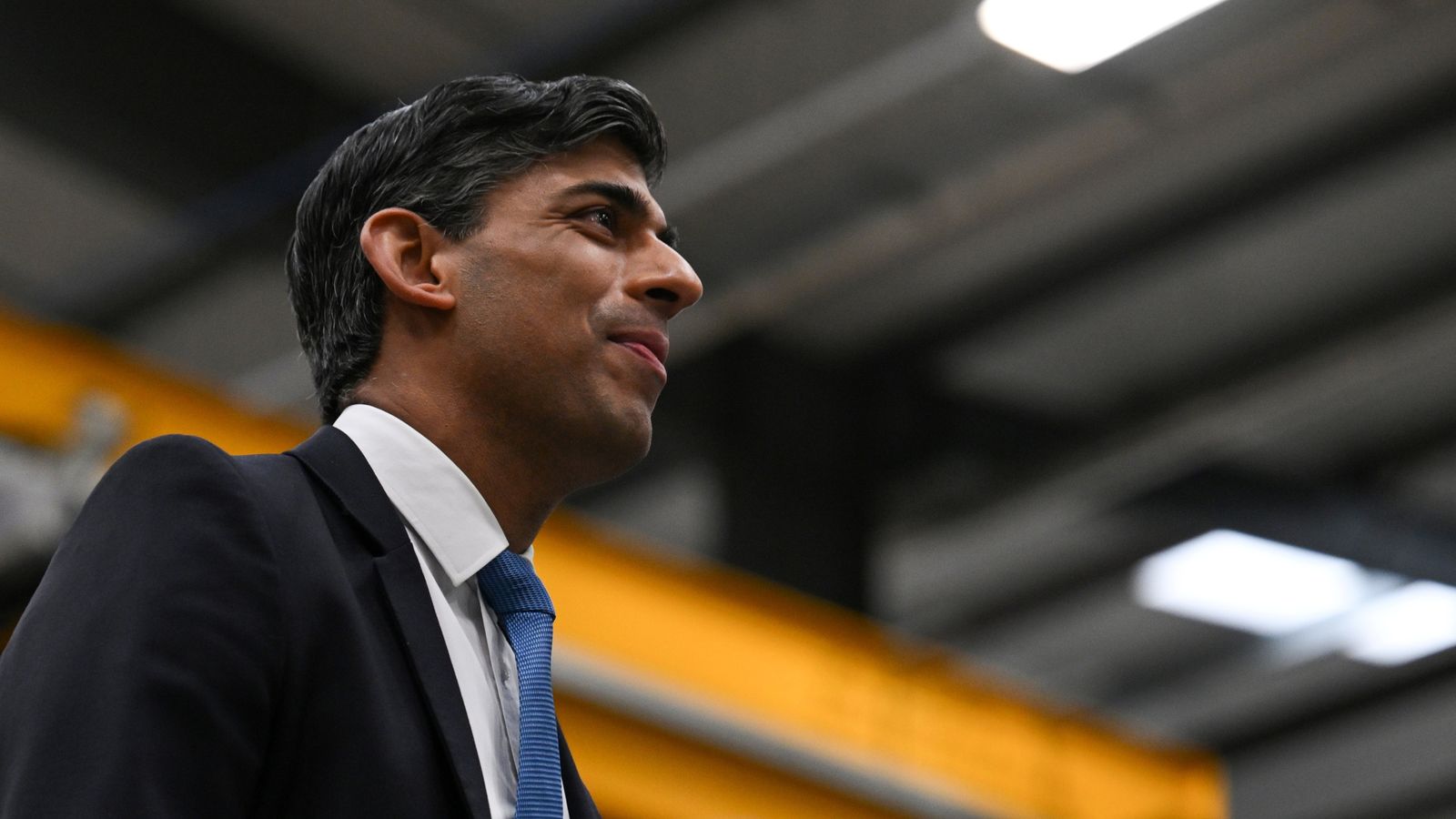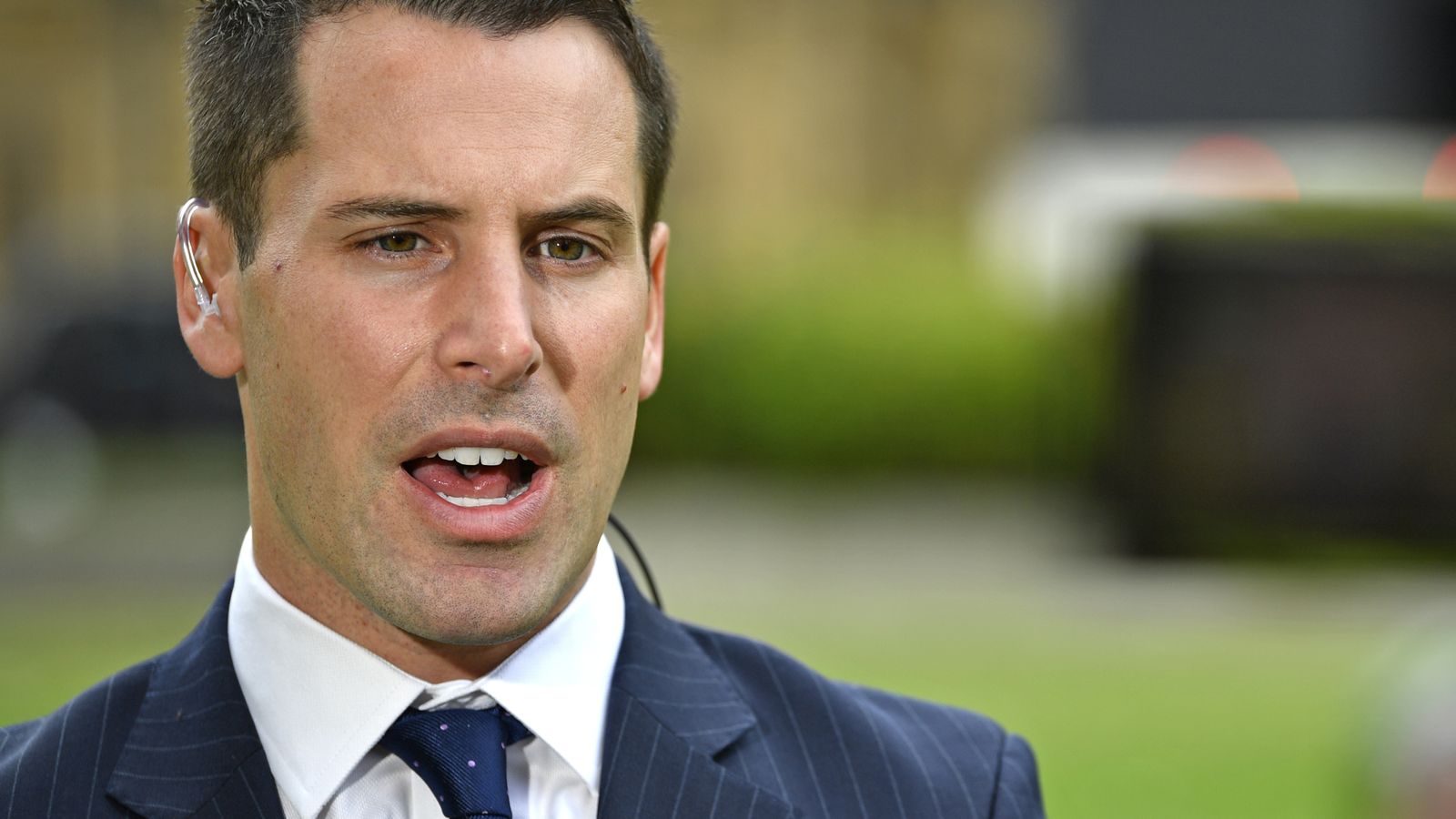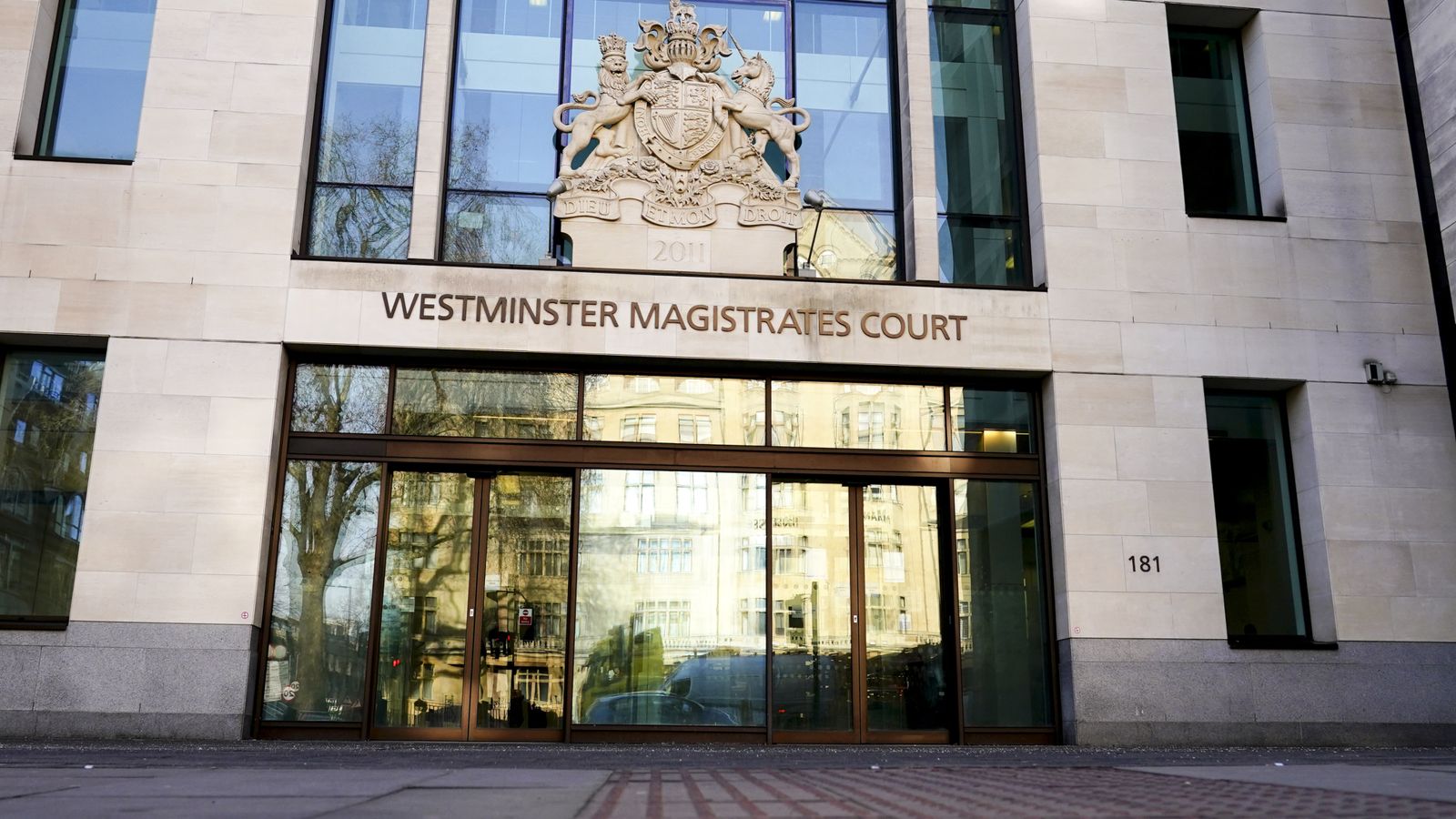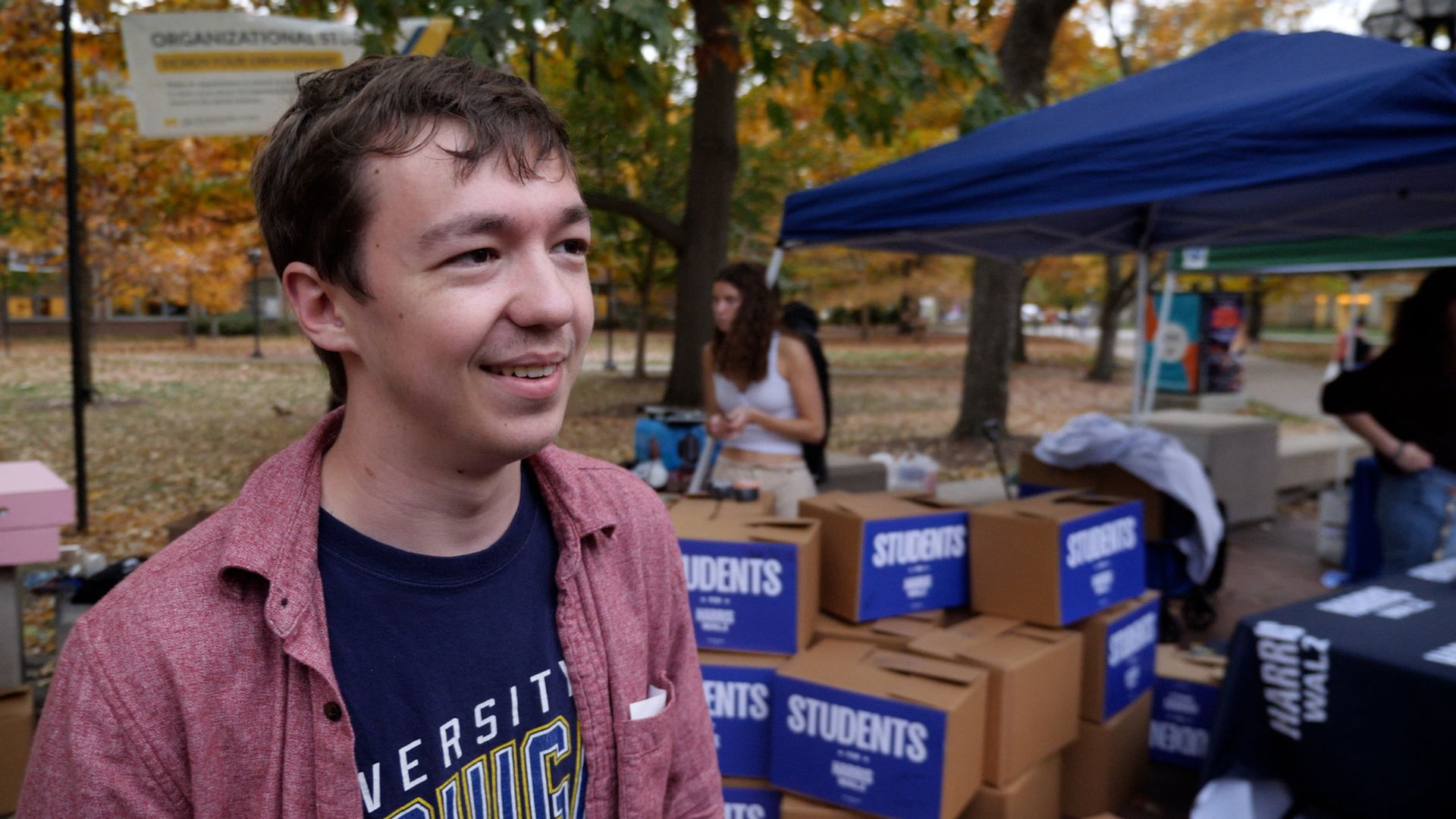Rishi Sunak is failing to hold together the voting coalition that delivered Boris Johnson a decisive victory in the 2019 general election, according to The Voters Panel on Sky News – launched today.
A profound unhappiness with the state of the country and exhaustion at years of Tory chaos means 2019 Tory voters will flock to at least four rival parties or stay at home at the next election.
Some describe themselves as swing voters, while others say they have backed the Tories all their lives, and this is the group Conservative headquarters and campaign chief Isaac Levido believes is key to the next election.
We found just over a fifth of Tory voters will switch directly to Labour and there is a grasp of what Labour stands for among participants in The Voters Panel, the Sky News-YouGov digital community group launched today reveals.
However, the depth of despair in the governing party means the relationship between the party and many voters has shattered and they are looking for a new home.
For the next two weeks, including through the budget next Wednesday, Sky News will be regularly interrogating The Voters Panel – an online group of at least 33 people from all corners of Great Britain.
Of the 33 submitting answers so far, nine say they will likely stick with the Conservatives, seven will go to Labour, five to Reform, two to the Lib Dems and one to Green.
Ministers ‘pandering to far right’ by not calling out Islamophobia, says ex-government adviser
Rishi Sunak braced for another by-election after ex-Tory MP Scott Benton suspended from Commons
Lee Anderson ducks questions on whether he will join Reform following Tory party suspension
Politics latest: Ousted Post Office chair says he’s victim of ‘smear campaign’
Eight say they aren’t sure, although three of these rule out voting Conservative. This echoes the latest polls.
The last YouGov voting poll suggested of those who voted Tory in 2019, 33% would stick with the party, 20% would switch to Reform, 13% to Labour, 3% to Lib Dem and 1% would go to the Green Party.
Some 29% say they don’t know or would not vote. This suggests that The Voters Panel looks very reflective of the national picture and will be used in the coming days to dig much deeper into voters’ views.
The headlines, drawn from dozens of videos and written exercises by the panel of 2019 Tory voters since Friday, include:
• A despair at the state of public services. Katrin, who will vote anyone but Tory next time, says schools are “struggling”, the NHS is “underfunded” and needs a cash injection and the economy is “failing”.
Helen, who is unsure where to take her vote now, says: “I am quite worried about the state of the country at the moment. It’s not just me that I need to think about, I’ve also got two young children.”
Michael, who will stick with the Tories, says: “The government doesn’t seem willing to back down to the doctors to give them a decent pay rise.”
• Concern about the cost of living isn’t matched by demands for tax cuts. Several of The Voters Panel have brought up the cost of living, and the pressures this brings, although there is an appreciation this is in part the consequence of COVID and the war in Ukraine – both out of the government’s control. However, this does not translate into spontaneous demands for tax cuts, beyond a tiny number of people already sticking with the Tories.
• There is a desire to punish the Tories. The anger felt towards the political chaos of recent years does not appear to have softened and was brought up spontaneously by a majority of panellists. Snezzana says the party she voted for in the last election is “destroying the country and the economy” and she will switch to Labour.
Paul, who will switch to the Greens, won’t back the Tories again after the “chaos since Boris was in charge”. Jyoti will not vote Tory again “because Brexit and COVID were all disasters” and while more recently unlikely to back Labour, could go to either end of the political spectrum and back Reform or Lib Dem.
• There is uncertainty about Sir Keir Starmer and Labour. Emma, who doesn’t know how to vote next time, says: “Starmer is someone that sits on the fence quite a lot.” Tom – who says he will vote Labour – says Sir Keir has moved Labour to the centre but “is not a 100% sure on what their manifesto will contain”, adding: “Is he a capable leader? I don’t know, we’ll find out.”
• Sir Keir is “indecisive” and “unbelievable”. Mr Sunak “rich” “unelected and “untrustworthy”. The words used to describe the leaders of the two main parties are largely unforgiving by our participants. Mr Sunak is also weak, disconnected; though seen as competent and intelligent. Sir Keir is known to be a lawyer but “hypocrite” looms large.
• Some, but not many, key messages from the parties, are getting through. David, who is switching to Labour, is one of the few to acknowledge Sir Keir “from a not-as-well-off background. He’s had family problems”.
Paul, who is sticking with the Tories, mimicked Mr Sunak’s slogan by saying “My worry is now…. the Labour Party will get in and we’ll be back to square one” and says “we need to stick with them, see this plan through”.
• Not everybody thinks it’s ‘time for a change’. After 14 years, a minority think that it is not time for a change. All three who suggest this are sticking with the Tories.
• Cut-through moments matter. Widely shared moments on social media are shaping perceptions. Paul, who will vote for the Greens, referenced the bet between Mr Sunak and Piers Morgan as evidence of Mr Sunak’s wealth, suggesting it means he is “obviously rich and I think that puts him a bit out of touch with people. The recent interview where he bet the interviewer a thousand pounds, was a bit not nice to see. Makes him out of touch, especially when people are going paycheck to paycheck”.
Read more:
Sunak ‘made calculation he doesn’t need Muslim voters’, claims Tory MP
Voters braced for deluge of Facebook and Instagram messages
The results of this community group – with so few directly switching Tory to Labour – may lead some Tory supporters to conclude that the next election is not lost, arguing Labour has not sealed the deal with the electorate. There are some glimmers of hope for the Tories. However, direct Tory-to-Labour switching may not be the decisive factor in the result.
The 1997 Labour landslide was driven, in part, by Tories staying at home rather than a surge of enthusiasm for Tony Blair.
In 1992, John Major got more votes than any leader at any election ever and a big drop in turnout – from 77.7% to 71.3% in 1997 – was a big part of Blair’s 179 majority. Jeremy Corbyn lost almost 3 million votes between 2017 and 2019, and that was instrumental in the Tory majority of 80.
This community group still suggests less than a third of Conservative voters would stick with the Tories in an upcoming election. This remains an existential challenge for the prime minister.










